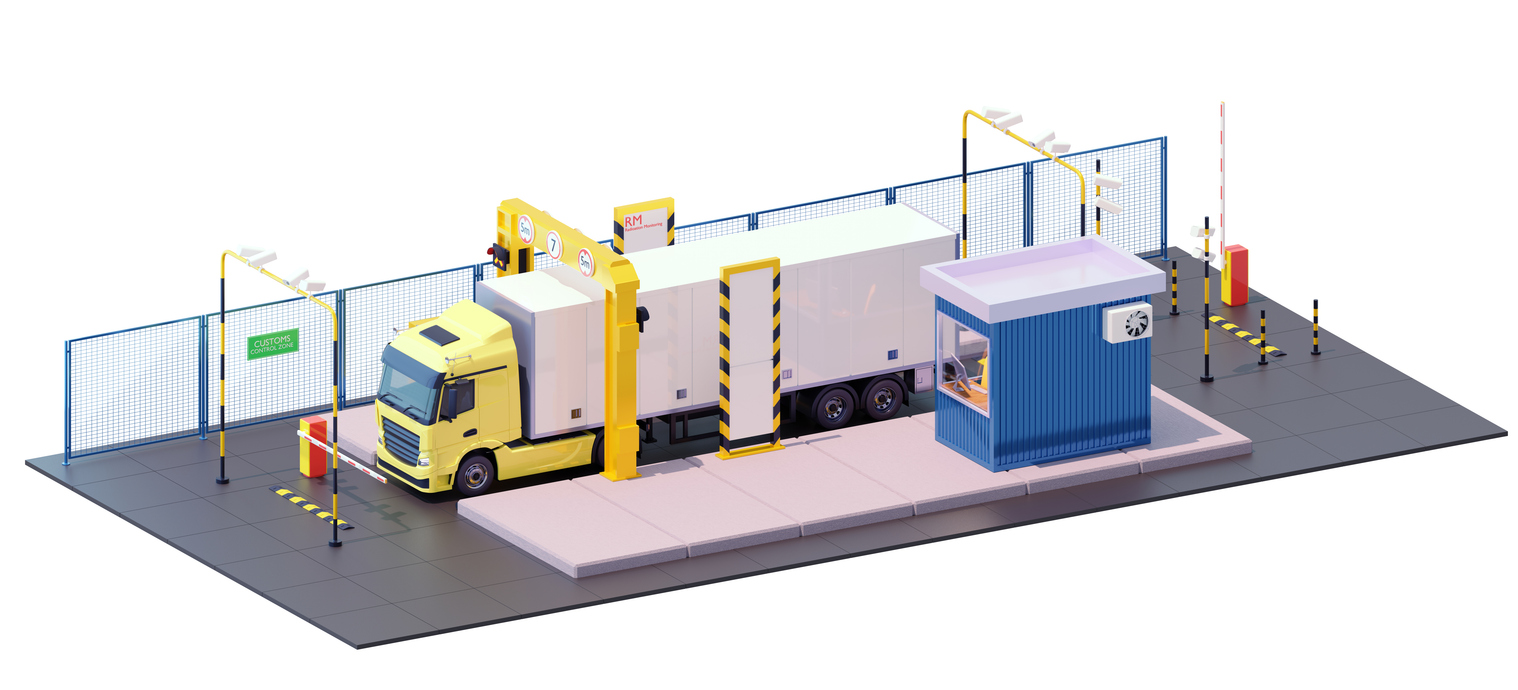The Impact of Fluctuating Fuel Prices on Transportation Fares in Nigeria
The Impact of Fluctuating Fuel Prices on Transportation Fares in Nigeria
Are you tired of paying exorbitant transportation fares every time fuel prices go through the roof? Well, buckle up because we’re about to dive deep into the rollercoaster ride that is Nigeria’s fluctuating fuel prices and their undeniable impact on transportation fares. In this blog post, we’ll uncover how these ever-changing costs affect your everyday commute, explore the reasons behind these fluctuations, and maybe even discover some silver linings amidst the chaos. So fasten your seatbelts and get ready for a journey filled with insights and revelations!
Introduction to the issue of fluctuating fuel prices in Nigeria
Introduction:
Nigeria, a country rich in oil reserves, has been facing the issue of fluctuating fuel prices for decades. This issue has had a significant impact on the transportation sector, as fuel is the primary source of energy for most modes of transportation in Nigeria. The unpredictable nature of fuel prices has caused major disruptions and challenges for both commuters and transport operators.
Factors Contributing to Fluctuating Fuel Prices in Nigeria:
There are various factors that contribute to the fluctuation of fuel prices in Nigeria, making it a complex issue to address. One of the main reasons is the global oil market, where international demand and supply play a crucial role in determining the price of crude oil, which directly affects the cost of refined petroleum products such as gasoline and diesel.
Another factor is government policies and regulations. In Nigeria, fuel prices are heavily regulated by the government through subsidies or price controls. This means that when global oil prices rise, it becomes more expensive for the government to maintain these subsidies or price controls, leading to an increase in domestic fuel prices. Additionally, political instability and disruptions in oil production can also influence fuel prices.
Impact on Transportation Fares:
The fluctuation of fuel prices has a direct impact on transportation fares across all modes of transportation in Nigeria. Public transportation such as buses and taxis heavily rely on petrol or diesel, so any increase in fuel cost will result in higher fares for passengers.
Brief overview of the transportation system in Nigeria
Nigeria’s transportation system is a complex network that plays a crucial role in the country’s economy and daily life. The system, which consists of various modes of transportation such as road, rail, air, and waterways, connects people from different regions and facilitates the movement of goods and services.
Road transportation is the most dominant mode of transport in Nigeria, accounting for over 90% of passenger traffic. This is mainly due to the poor state of railway infrastructure and limited air connectivity within the country. Most Nigerians rely on buses, mini-buses (popularly known as “danfos”), taxis, motorcycles (okadas), and tricycles (kekes) for their daily commute.
The federal government controls all major highways in Nigeria while state governments manage roads within their jurisdiction. However, many roads are poorly maintained or constructed with inadequate drainage systems leading to frequent damage during heavy rainfall. This results in longer travel time and increased vehicle maintenance costs for drivers which ultimately affects transportation fares.
Railway transportation has been neglected for decades in Nigeria but efforts are being made by the current administration to revitalize this mode of transport. The Nigerian Railway Corporation operates a limited number of train services connecting major cities like Lagos, Kano, Kaduna, Port Harcourt, Enugu among others. However, these services are not reliable or efficient enough to significantly reduce dependence on road transport.
The correlation between fuel prices and transportation fares
The correlation between fuel prices and transportation fares is a topic that has been heavily debated in Nigeria, as the country continues to face frequent fluctuations in fuel prices. With transportation being an essential service for many Nigerians, any changes in fare prices have a direct impact on their daily lives and expenses. In this section, we will delve into the relationship between fuel prices and transportation fares, exploring how one affects the other.
Fuel prices have long been known to be a significant factor in determining transportation fares. This is because most forms of public transportation, such as buses and taxis, rely heavily on petroleum products like petrol and diesel to operate. As fuel makes up a large portion of operating costs for these vehicles, any increase or decrease in its price directly affects their profitability.
When fuel prices rise, it becomes more expensive for transport operators to keep their vehicles running. As a result, they are forced to increase their fares to cover the additional costs. This not only applies to public transport but also private cars used for ride-sharing services like Uber and Bolt. These companies often adjust their pricing algorithms based on current fuel prices to ensure that drivers can still make a profit while covering their own expenses.
Conversely, when fuel prices drop, transport operators are able to reduce their fares as they are spending less money on fuel. However, this reduction does not always happen immediately or at all depending on various factors such as competition among transport providers and government regulations.
Effects on commuters and their daily lives
The fluctuating fuel prices in Nigeria have had a significant impact on commuters and their daily lives. With transportation being a crucial part of the everyday routine for many Nigerians, any changes in fuel prices can greatly affect their wallets and overall quality of life. In this section, we will discuss the various effects that commuters have experienced due to these fluctuations.
One of the most immediate impacts of fluctuating fuel prices is the rise in transportation fares. As fuel prices increase, transport operators are forced to adjust their fares accordingly, often resulting in higher costs for commuters. This not only affects those who rely on public transportation but also those who use private vehicles as they need to spend more money on fuel.
For low-income earners, this increase in transportation fares can be especially challenging as it eats into their already limited budget. Many Nigerians who live below the poverty line struggle to afford basic necessities such as food and housing, and any additional expenses like increased transport costs can push them further into financial hardship.
Moreover, fluctuating fuel prices can also disrupt daily commute schedules for many people. With rising transportation costs, some may opt to take longer routes or use different modes of transportation (such as motorcycles or tricycles) to save money. This can result in longer travel times and may negatively impact work schedules or other commitments.
Factors contributing to the fluctuation of fuel prices in Nigeria
There are several factors that contribute to the fluctuation of fuel prices in Nigeria, and understanding these factors is crucial in comprehending the impact it has on transportation fares. In this section, we will discuss the main drivers of fuel price fluctuations in Nigeria.
1. Global Oil Market: The global oil market plays a significant role in determining fuel prices in Nigeria. Being a major exporter of crude oil, any changes in international demand and supply can directly affect the cost of fuel within the country. For instance, if there is an increase in global demand for oil, it can lead to a rise in fuel prices as exporting countries like Nigeria may choose to limit their supply to meet this high demand.
2. Government Policies: The Nigerian government has control over fuel pricing through its regulatory agencies such as the Petroleum Products Pricing Regulatory Agency (PPPRA). Changes in policies related to importation and distribution of petroleum products can greatly impact fuel prices. For example, if there is an increase in taxes or tariffs imposed by the government on imported petroleum products, it can result in higher retail prices for consumers.
3. Exchange Rates: Another critical factor that affects fuel prices is currency exchange rates. Since Nigeria imports a significant portion of its refined petroleum products, any devaluation of its local currency against foreign currencies like the US dollar can lead to an increase in import costs and eventually higher pump prices.
Government policies and interventions to address the issue
The issue of fluctuating fuel prices in Nigeria has had a significant impact on transportation fares, making it difficult for commuters to afford the cost of traveling from one place to another. In response to this problem, the Nigerian government has implemented various policies and interventions aimed at addressing the issue and providing relief for both commuters and transport operators.
One of the main policies introduced by the government is the Petroleum Product Pricing Regulatory Agency (PPPRA) Act. The act was established in 2003 to regulate and monitor fuel prices in the country. It is responsible for setting price bands for petroleum products such as gasoline, diesel, and kerosene based on global oil prices, exchange rates, and other economic factors. This helps to ensure that fuel prices remain stable and prevent sudden increases in fares.
Another significant intervention by the government is through subsidies on fuel prices. Subsidies are provided by the government to cushion the effects of high fuel prices on consumers. These subsidies are also aimed at supporting transport operators by reducing their operating costs. However, there have been concerns about the effectiveness of these subsidies as they often lead to corruption and mismanagement.
In recent years, there have been efforts by the government to diversify its energy sources with a focus on renewable energy. This includes investments in solar power generation, which could potentially reduce reliance on traditional fuels like petrol and diesel. These initiatives not only aim to stabilize fuel prices but also promote sustainable development in line with global trends.
Possible solutions to mitigate the impact on transportation fares
Possible Solutions to Mitigate the Impact on Transportation Fares:
1. Alternative Fuel Sources: One possible solution to mitigate the impact of fluctuating fuel prices on transportation fares in Nigeria is by exploring alternative fuel sources. This could include using renewable energy sources such as solar, electric, or biofuels. By reducing dependence on traditional fossil fuels, transportation companies can reduce their operating costs and ultimately decrease the impact of fuel price fluctuations on their fares.
2. Government Subsidies: Another solution would be for the government to provide subsidies or tax breaks for transportation companies. These subsidies can help offset the high cost of fuel and allow companies to keep their fares at a reasonable rate for commuters. This approach has been used in other countries with success, and it could be implemented in Nigeria as well.
3. Efficient Route Planning: Implementing efficient route planning can also help mitigate the impact of fluctuating fuel prices on transportation fares. By optimizing routes and minimizing idle time, transportation companies can reduce their fuel consumption and save money in the long run. This cost savings can then be passed onto commuters through lower fares.
4. Investment in Fuel-Efficient Vehicles: Investing in fuel-efficient vehicles is another way to combat rising fuel prices and keep transportation fares stable for passengers. With advancements in technology, there are now many options for more sustainable vehicles that use less fuel without compromising performance.
Conclusion on the importance of stable fuel prices for a functioning transportation system in Nigeria.
Conclusion on the Importance of Stable Fuel Prices for a Functioning Transportation System in Nigeria:
In Nigeria, transportation is a vital aspect of daily life, as it connects people to their workplaces, schools, and families. However, the constantly fluctuating fuel prices in the country have had a significant impact on the transportation sector. The increase or decrease in fuel prices directly affects the cost of transportation fares, making it difficult for both commuters and transport operators to plan and budget effectively.
The importance of stable fuel prices for a functioning transportation system cannot be overstated. In this conclusion section, we will discuss the key reasons why stable fuel prices are crucial for an efficient and sustainable transportation system in Nigeria.
1. Affordable Transportation: Stable fuel prices ensure that transportation remains affordable for all citizens, especially those from lower-income groups who heavily rely on public transport. When fuel prices are high, transport operators are forced to increase fares to cover their costs, making it difficult for people to afford daily commutes. This results in reduced mobility and can have a negative impact on economic growth and development.
2. Reliable Public Transport Services: With stable fuel prices, public transport services such as buses and taxis can operate consistently without interruptions caused by sudden increases or decreases in fuel costs. Unstable fuel prices make it challenging for these services to maintain regular schedules as they struggle to adjust fares accordingly.







Comments are closed.